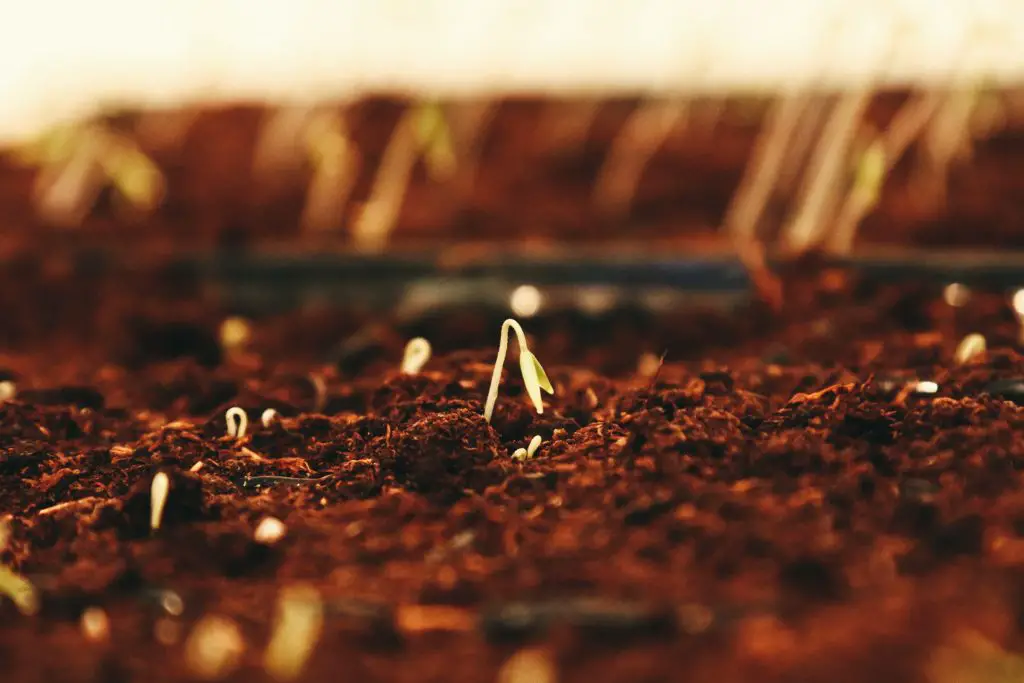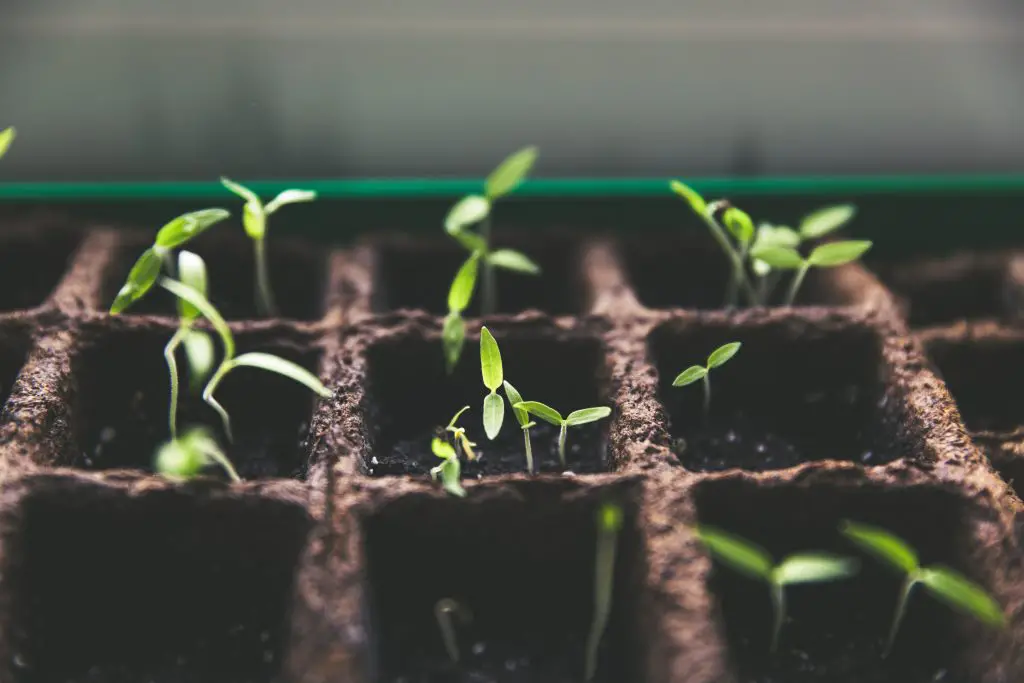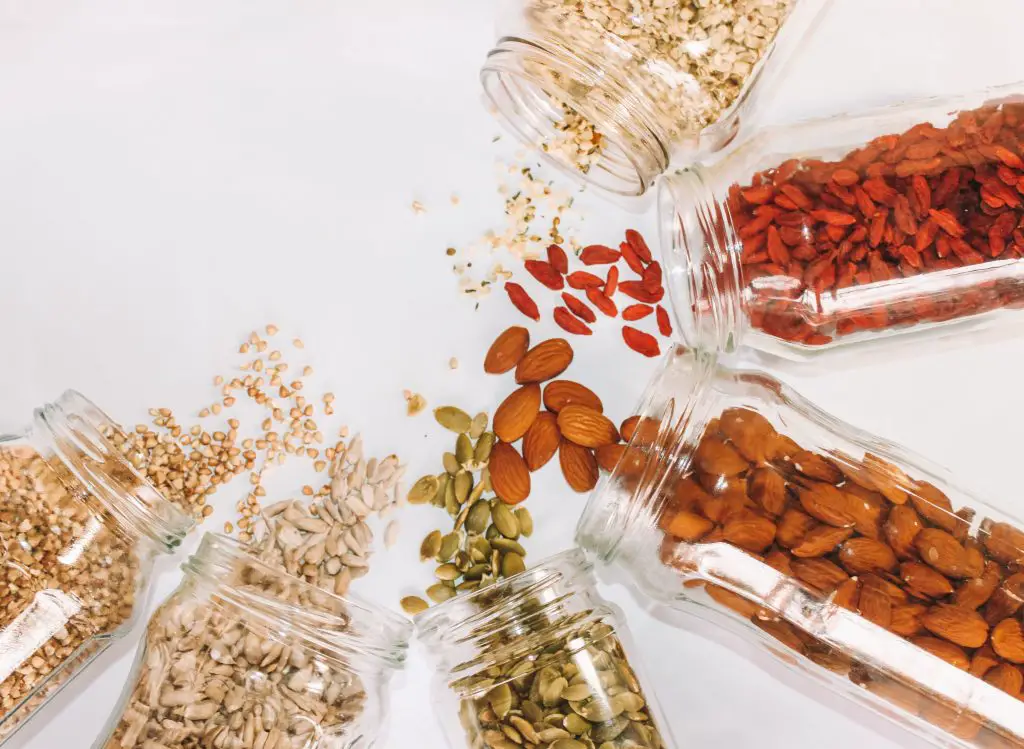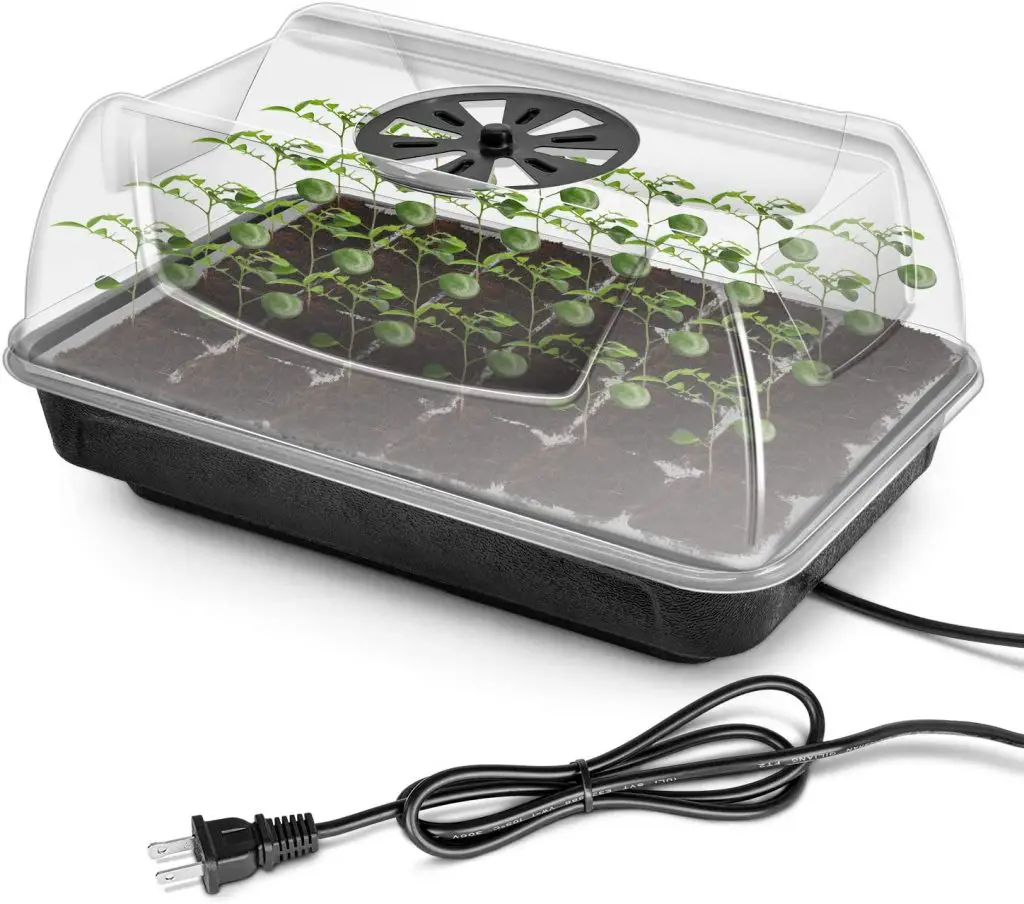How Long Does It Take For Seeds To Germinate? If you’re someone that is new to gardening you might be wondering how long it takes for seeds to germinate and what sort of variation you might expect for different types of plants or vegetables.
Seeds typically take somewhere between 7 to 21 days to germinate, however, this is highly dependent upon the type of plant that has been grown and the temperature at which it is being grown. Seeds can typically germinate between temperatures of 32 to 104°F, however, it is most common to see seeds germinating between 65 to 85°F.
However, there are some other factors that will affect your germination rate which include things such as soil moisture, nutrients, and light. For example, lettuce seeds require light to germinate, and therefore if they’re buried too deeply in the soil they are likely to not come up at all. Other seeds that can be difficult to grow are things like carrots, parsnip, and parsley which are all very slow to germinate and require constant moisture to start to grow.

However, despite these variations, the largest single factor that affects the time that it takes for a seed to germinate is temperature. A study compiled by the University of California looked at the speed of seed germination for range vegetables across a range of temperatures and this gives a very good indication of the degree of variation that you might expect to see in terms of the germination rate.
For your reference, I have included a table of the data that the University of California collected below.
| Crops | Minimum (°F) | Ideal Range (°F) | Maximum (°F) |
| Asparagus | 50 | 75-85 | 95 |
| Beans, Lima | 60 | 75-85 | 85 |
| Beans, Snap | 60 | 75-85 | 95 |
| Beets | 40 | 65-85 | 95 |
| Broccoli | 40 | 60-85 | 95 |
| Cabbage | 40 | 60-85 | 95 |
| Carrots | 40 | 65-85 | 95 |
| Cauliflower | 40 | 65-85 | 95 |
| Celery | 40 | * | * |
| Chard, Swiss | 40 | 65-85 | 95 |
| Corn | 50 | 65-95 | 105 |
| Cucumbers | 60 | 65-85 | 105 |
| Eggplant | 60 | 75-85 | 95 |
| Garlic | 32 | 65-85 | 95 |
| Leeks | 32 | 65-85 | 95 |
| Lettuce | 32 | 60-75 | 85 |
| Muskmelon (Cantaloupe) | 60 | 75-85 | 105 |
| Okra | 60 | 85-95 | 105 |
| Onions | 32 | 65-85 | 95 |
| Parsley | 40 | 65-85 | 95 |
| Parsnips | 32 | 65-75 | 85 |
| Peas | 40 | 65-75 | 85 |
| Peppers | 60 | 65-75 | 95 |
| Pumpkin | 60 | 85-95 | 105 |
| Radishes | 40 | 65-85 | 95 |
| Spinach | 32 | 65-75 | 75 |
| Squash | 60 | 85-95 | 105 |
| Tomatoes | 50 | 65-85 | 95 |
| Turnips | 40 | 60-95 | 105 |
| Watermelons | 60 | 75-95 | 105 |
for good germination. Optimal conditions are 85°F day, 70°F night with diffuse light and high moisture.
How Can I Make My Seeds Germinate Faster And More Reliably?
As you can see from the table above the number one factor that affects the rate of germination is the temperature at which you germinate seeds so to ensure that your seeds grow rapidly it is important to ensure that you have sufficient heat.
One of the easiest ways to do that is to plant seeds into seed trays rather than into the garden because the growing conditions can be modified simply by bringing the tray indoors into your house or into a space such as a greenhouse.
However, one of the issues associated with bringing trays indoors is that the heat source is within the house are not always reliable simply because of the way they are used. Many houses will put the heating on during the day but not at night which means that the temperature can fall significantly, particularly, in areas where the temperature outside is relatively cold.

The other danger associated with this type of heat source is that seed trays may be placed too close to the heat source which will result in the tray drying out rapidly which will be detrimental to the seeds’ germination.
The way to minimize these effects is to use a heated propagation tray which ensures that there is a constant level of heat applied to the seed tray maximizing the rate of growth. Additionally, it is also important to maintain a humid environment which means that is a good idea to have a humidity dome applied to the seed tray to maximize moisture and heat retention.
The product that we recommend for this is the ipower heated propagation tray which features a humidity dome and also a separate seed tray that is removable. The advantage of this is that the seed tray is the area of the unit that is most likely to deteriorate first so this allows for it to be replaced maximizing the life of the unit. To see the latest price click on the link below to visit Amazon.
How Deep Do You Plant Seeds?
The depth at which to plant seeds varies depending upon the nature of the seed that you are planting, however, the general rule that most people apply is the plant the seed at a depth that is approximately equal to the width of the seed itself which means the larger the seed the deeper it is planted.
What Type Of Soil Do You Plant Seeds Into?
The best material to plant seeds into is a specific seed raising mix because it has specific properties that are most suited to the raising of seedlings and cuttings. These features are that the size of the grain within the mixture is very fine and it has the capacity to hold a reasonable amount of moisture which are both important characteristics required for successful germination.
The fine texture of the seed-raising mix is important because it ensures that the seed has good contact with the mixture and is able to access the nutrients available relatively easily.
If you purchase things such as potting mix you will find that many seeds will still germinate however it is generally not the preferred media for growing seeds because the texture of the potting mix is too coarse and it will delay the development of the plant.
You may also wonder why you don’t simply use soil straight out of the garden in a seed tray. The reason for this is that soil from the garden will often contain existing weed seeds which will come up with the seeds that you plant.
There are two problems with this which are that having weed seeds present in your seed tray will deprive the plans of nutrients that it needs to develop. The second issue is that if you are growing seeds for the first time you may find it difficult to recognize what is a weed in what is the plant that you intend to grow.

Can You Plant Seeds From Store-Bought Vegetables
The general answer to this is yes you can plant seeds from store-bought vegetables however there are a few disadvantages to doing this which you need to take into account. The first major disadvantage is that the majority of vegetables grown commercially are produced from hybrid seeds which are seeds that have been produced by a specific cross between two varieties that create specific traits that are desirable for the grower.
Because this cross has happened in the previous generation the seeds are genetically unstable and will cross-pollinate again to produce, sometimes, quite unexpected results. As a result of this, most people do not recommend planting seeds from store brought plants as it can be somewhat unreliable.
When growing plants from purchased seeds they can also be hybrid plants or open-pollinated seeds which are sometimes referred to as heirloom varieties. The advantage of open-pollinated seeds is that you can collect them year on year which means that you do not have to re-buy the seeds every year you can simply collect them from the fruit that you grow.
If you are interested in growing heirloom or open-pollinated varieties we would highly recommend that you visit seed now as they specialize in these types of seeds and have a very large range at one of the lowest prices in the market. To visit them click on the link below.
I hope you found this article useful and have great success growing plants at home from seed, if you have any questions or comments please leave them in the section below.
Relevant Articles
Can I Use A Regular Heating Pad For Seedlings?
Do You Have To Use Seed Starting Mix?
What Are The Advantages Of Hybrid Seeds Over Open Pollinated Seeds?


